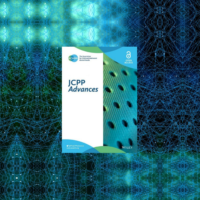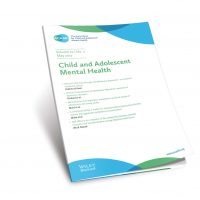Search results
-

Children’s cognitive performance and suicide risk through middle adulthood
Paper from the JCPP – ‘Longitudinal studies show that lower cognitive performance in adolescence and early adulthood is associated with higher risk of suicide death throughout adulthood. However, it is unclear whether this cognitive vulnerability originates earlier in childhood since studies conducted in children are scarce and have inconsistent results.’ Pablo Vidal-Ribas (pic) et al.
Read more -

Investigating the impact of the COVID-19 pandemic on older adolescents’ psychological wellbeing and self-identified cognitive difficulties
Open Access paper from JCPP Advances – ‘The COVID-19 pandemic coincides with growing concern regarding the mental health of young people. […] At three timepoints, independent samples of young people aged 16–18 years completed an online survey. Data collection coincided with periods of lockdown and young people returning to school. The survey assessed subjective impacts of the pandemic on overall wellbeing, anxiety and cognitive function.’ Meg Attwood (pic) et al.
Read more -

JCPP Advances 2023 Lectures ‘What the research tells us; Anxiety, Neurodiversity, Suicide, and Genetics’ – recording
This free webinar features a series of five fantastic 10-minute lectures from leading researchers, academics and practitioners on key topics in the field of child and adolescent mental health.
Read more -

Associated Brain Alterations and Future Suicide Ideation in Female Adolescents and Young Adults with Mood Disorders
In this Papers Podcast, Lejla Colic and Dr. Hilary Blumberg discuss their co-authored JCPP Advances paper ‘Brain grey and white matter structural associations with future suicidal ideation and behaviors in adolescent and young adult females with mood disorders’.
Read more -

JCPP Advances selected for coverage in APA PsycINFO
ACAMH open access journal JCPP Advances has been selected for coverage in APA PsycINFO, beginning with the 2023 volume.
Read more -

Sleep influences daily suicidal ideation through affective reactivity to interpersonal events among high-risk adolescents and young adults
Open Access paper from the JCPP – “This study used an intensive monitoring approach to examine whether objectively- and subjectively- measured sleep characteristics predict next-day suicidal ideation occurrence and intensity through affective reactivity to interpersonal events in young people at high risk for suicide”. Jessica L. Hamilton (pic) et al.
Read more -

Suicidal ideation during adolescence: The roles of aggregate genetic liability for suicide attempts and negative life events in the past year
Open Access paper from the JCPP – “Suicidal thoughts and behaviors (STB) constitute a central public health concern in adolescence. Previous studies emphasized the difficulty to cope with negative life events during adolescence as a risk factor for STB”. Séverine Lannoy (pic) et al.
Read more -

Mental health outcomes of the Daily Mile in elementary school children: a single-arm pilot study
Paper from the CAMH journal – “This study is the first to examine TDM (a daily one mile outdoor run/walk performed at a self-selected pace during school hours) on mental health, self-esteem and self-perceived competence of elementary schoolchildren”. Anke Arkesteyn et al.
Read more -

JCPP Editorial: Volume 62, Issue 08, August 2021
Editorial: ‘COVID-19: lessons learned for suicide prevention’ by Joan R. Asarnow and Bowen Chung
Read more -

‘Understanding developmental cognitive science from different cultural perspectives’ – In Conversation with Tochukwu Nweze
Tochukwu Nweze, lecturer in the Department of Psychology, University of Nigeria, Nsukka and, PhD student in MRC Cognition and Brain Sciences Unit, University of Cambridge talks about his recent paper on parentally deprived Nigerian children having enhanced working memory ability, how important is it to study cultural differences in cognitive adaption during and following periods of adversity, and how can mental health professionals translate this understanding of difference into their work.
Read more